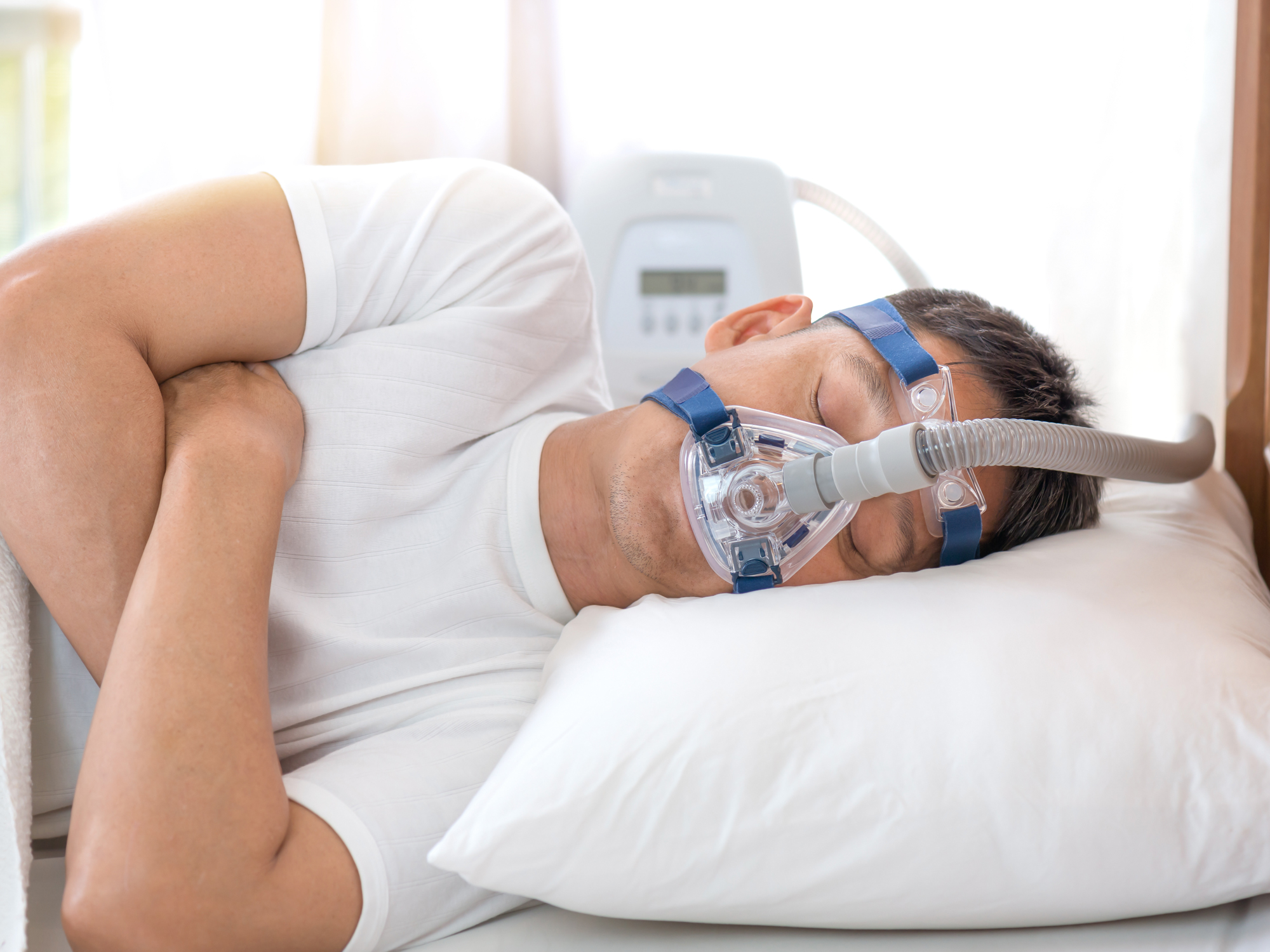Get Easy Health Digest™ in your inbox and don’t miss a thing when you subscribe today. Plus, get the free bonus report, Mother Nature’s Tips, Tricks and Remedies for Cholesterol, Blood Pressure & Blood Sugar as my way of saying welcome to the community!
Can this new cannabis-like treatment fix your sleep apnea?

Sleep apnea is a serious sleep disorder in which a person stops breathing repeatedly during sleep, depriving the brain and the rest of the body from oxygen. Because of this, the main daytime symptom is sleepiness and fatigue. Chronically, this leads to poor quality of life and even depression. Sleep apnea can make you feel like you are chronically recovering from jet lag after international travel across several time zones!
What’s more, sleep apnea is associated with high blood pressure, stroke, pulmonary hypertension and heart arrhythmia. It’s also a known risk factor for early death from heart disease.
What causes sleep apnea?
Sleep apnea is usually caused by airway obstruction (obstructive sleep apnea), or more rarely from faulty brain messaging (central sleep apnea). These pauses in breathing can last from a few seconds to minutes, occurring many times per hour, all night long.
Obstructive sleep apnea is typically a condition of obesity, or just having a narrow throat, thick neck, and rounder head so that there is thicker soft tissue of the mouth and throat. Other contributing factors include hypothyroidism, excessive growth hormone, allergies or deviated septum.
Central sleep apnea is more mysterious. Risk factors include congestive heart failure, opioid narcotic use (especially methadone), and prior stroke.
CPAP is less than ideal treatment
The first and most obvious treatment for both kinds of sleep apnea is to wear a mouth mask all night that is connected to an air pressure device, called CPAP (continuous positive airway pressure) or BIPAP (Bilevel Positive Airway Pressure). These both push pressurized air to keep throat muscles from collapsing, acting as a splint.
For many people a CPAP device is highly effective. Others simply refuse to use it. On average, CPAP devices are used for only about 4 hours per night. This means that CPAP devices for sleep apnea effectively produces only about 50% improvement.
Other treatments do exist, and with even higher success rates. One of these is Mandibular Advancement Devices. These move the lower jaw (mandible) forward which opens the airway by also drawing the tongue away from the throat.
New medication for obstructive sleep apnea
Sleep apnea is multi-factorial. One factor is poor regulation by the brain of the throat and upper airway muscles. As mentioned, CPAP devices target the mechanical problem but not the cause.
Researchers have attempted to identify drugs to treat sleep apnea for nearly 35 years,
An effective medicine would mean that instead of sleeping only 4 hours per night as with CPAP, you could take a pill and be treated for the entire night.
Now there is such a medication that alters the brain’s neurotransmitters that communicate with the throat muscles. A recent multi-site study conducted at Northwestern Medicine and the University of Illinois at Chicago (UIC) and funded by the National Institutes of Health (NIH) showed that a synthetic cannabis-like drug was safe and effective for the treatment of obstructive sleep apnea and reduced daytime sleepiness.
The medication, Dronabinol, is a synthetic pill version of Delta-9 THC (tetrahydrocannabinol), a.k.a. cannabis, which was previously approved by the Food and Drug Administration 25 years ago to treat nausea and vomiting patients receiving chemotherapy.
The study included 73 adults with moderate or severe sleep apnea. They were divided into three groups: low dose dronabinol, higher dose (10 mg) dronabinol, and a placebo, taken nightly for six weeks.
The highest dose of dronabinol caused a 33% reduction in sleep apnea and subjective daytime sleepiness and overall treatment satisfaction when compared with CPAP (complete compliance).
Marijuana versus cannabinoid
Just in case you don’t know yet, ingesting or smoking marijuana will not get you the same benefits as from the medicinal portion of marijuana, called cannabinoid (“CBD”). The researchers in the referenced study tested only purified delta-9 THC. However, we know that there are many active ingredients found in cannabis that are being tested and used effectively for different health conditions. I’d like to expand on these in my next article.
To sleeping well and enjoying health,
Michael Cutler, M.D.
Editor’s note: There are perfectly safe and natural ways to decrease your risk of blood clots including the 25-cent vitamin, the nutrient that acts as a natural blood thinner and the powerful herb that helps clear plaque. To discover these and other secrets of long-lived hearts, click here for Hushed Up Natural Heart Cures and Common Misconceptions of Popular Heart Treatments!
Sources:
- Lavie P, Lavie L. Cardiovascular morbidity and mortality in obstructive sleep apnea — Curr Pharm Des. 2008;14(32):3466-73. Review. PubMed PMID: 19075722
- Mandibular Advancement Devices or MAD’s — American Sleep Assoc.
- Carley DW, Prasad B, Reid KJ, Malkani R, Attarian H, Abbott SM, Vern B, Xie H, Yuan C, Zee PC. Pharmacotherapy of Apnea by Cannabimimetic Enhancement, the PACE Clinical Trial: Effects of Dronabinol in Obstructive Sleep Apnea. — Sleep. 2018 Jan 1;41(1). PubMed PMID: 29121334.













